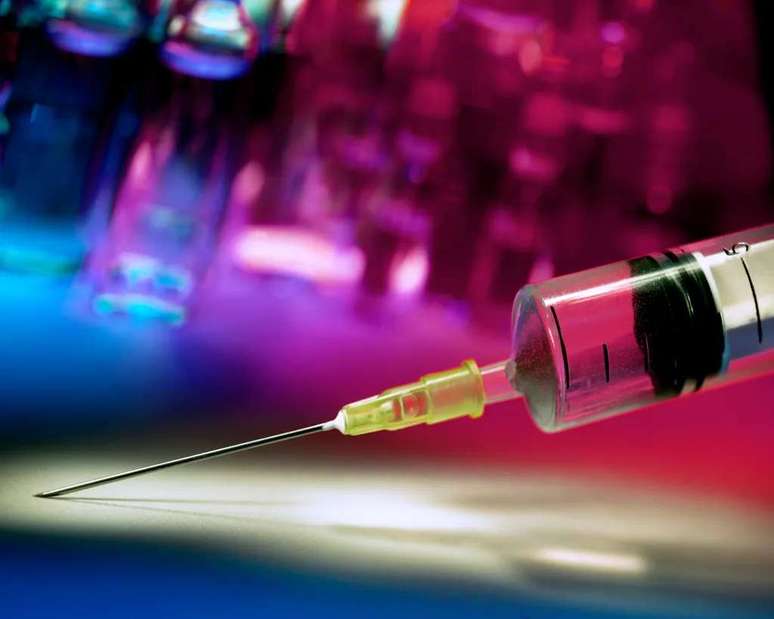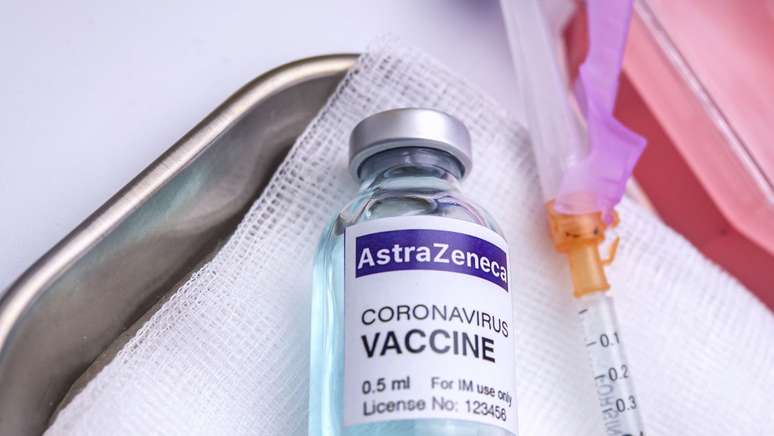The Ministry of Health has started recommending not to apply viral vector immunizers as a booster and the AstraZeneca vaccine has stopped being produced
Production of the AstraZeneca vaccine against covid-19 has been suspended in Brazil. Taking into account the increased risk of thrombosis, especially in women, the Ministry of Health has begun to recommend not applying vaccinations with viral vectors as a booster from the third dose onwards in the population under 40 years of age.
- Study: AstraZeneca vaccine dose error brings new discovery to science
- Strengthening the AstraZeneca vaccine against covid-19 is necessary, the study points out
In a technical note, Pasta points out that, out of 40 probable and confirmed cases of Thrombotic Syndrome with Thrombocytopenia distributed per dose of the covid-19 vaccine, 34 were attributed to the AstraZeneca vaccine. In Brazil, the production of the immunizer was the responsibility of the Oswaldo Cruz Foundation (Fiocruz), but the contract with the Anglo-Swedish laboratory was not renewed.
Previous studies indicated that the immunizer was associated with clot formation in some patients, especially younger ones. In some European countries, the vaccine is no longer used in children under 30.
AstraZeneca: benefits x reactions
In March 2021, the World Health Organization (WHO) reiterated that the benefits of the vaccine outweigh the side effects. The institution also highlighted that “thromboembolic events can occur frequently” and that “venous thromboembolism is the third most common cardiovascular disease in the world”.
At the time, Anvisa itself (National Health Surveillance Agency) also spoke out on the AstraZeneca / Oxford vaccines, stating that “the data do not indicate a change in the risk-benefit ratio of the vaccine” and that “it recommends the continuity of its use by the Brazilian population”.

Does the Astrazeneca vaccine have late side effects?
In any case, experts point out that people who got the vaccine in the early years of the epidemic shouldn’t worry about late side effects, considering that these rare adverse events occur in the first 14 days after vaccination.
Health professionals emphasize that the vaccine does not remain in the body and this viral vector is eliminated, leaving the effects of the vaccine, which are immunity and the generation of neutralizing bodies and cellular response.
Therefore, it can be concluded that there is currently no concern for those who have taken the vaccine in the past. These effects are very rare and hardly detected in phase 3 studies.
Source: fry, Ministry of Health
Trending on Canaltech:
- Shein, Shopee and Aliexpress in the crosshairs: revenue confirms the end of the exemption up to $50
- 7 jokes that have aged badly on friends
- Dark matter distorts ancient light from the Big Bang and confirms Einstein’s theory
- Which Samsung phones will have Galaxy S23 camera features?
- Income Tax 2023: see when the refund is triggered
- Hunger Success Review | The film brings a good social analysis albeit with errors
Source: Terra
Rose James is a Gossipify movie and series reviewer known for her in-depth analysis and unique perspective on the latest releases. With a background in film studies, she provides engaging and informative reviews, and keeps readers up to date with industry trends and emerging talents.







